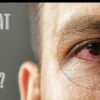EFFECT OF ALCOHOL ON THE EYES
Excessive consumption of alcohol can encourage eye problems:
- Double and distorted vision can occur from information that is slowed down between the eye and the brain. Decreasing the reaction time for the pupils to dilate, alcohol can impair the ability to see different colour shades or adjust to lighting differences.
- Swelling of the blood vessels in the eye or the look of red bloodshot eyes is a common feature of those who have been lifetime drinkers.
- Another problem that excessive drinking leads to is migraine headaches, as the eye becomes sensitive to light; the result is pain.
- Long-term abuse of alcohol can also lead to toxic amblyopia or vision loss.
- Both short-term and long-term use of alcohol affects the optic nerve and the relationship between the brain and the eye.
- Alcohol consumption can cause serious damage and injury, whether directly through abuse of the substance or triggering another disease such as liver disease or road accidents.
- This is the type of health risk that most people would associate with heavy drinking.
SHORT-TERM EFFECTS OF ALCOHOL ON YOUR VISION
- Drinking alcohol will slow down reactions and therefore reflexes will be slower, this is one of the main reasons why it’s dangerous and illegal to drink and drive. This slow reaction also affects your vision, with a slower pupil reaction, making it more difficult to clearly distinguish between different objects based on lightness and darkness.
- Alcohol can cause blurry and distorted vision and while everyone reacts differently to different amounts of alcohol, you will likely experience this at some point. There is a delay between the brain and the eyes due to the slow pace of communication between neurotransmitters in the brain which weakens the eye muscle coordination.
- Overconsumption of alcohol can also result in an increased occurrence of dry eye (alcohol is a diuretic which means that it increases the amount of water and salt that passes through our bodies as urine. This causes dehydration which can lead to dry eyes as there aren’t enough tears to lubricate the eye) and eyelid twitching. Symptoms like these will likely stop once you have stopped drinking.
LONG-TERM EFFECTS OF ALCOHOL ON YOUR VISION
Long-term effects of alcohol abuse can have detrimental consequences on your vision and eye health. In extreme cases, toxic amblyopia, the result of a toxic reaction in the optic nerve which causes permanent vision loss.
- Excessive alcohol may increase your risk of age-related macular degeneration
- Poor diet and over-consumption of alcohol may also be related to developing cataracts.
- Prolonged alcohol abuse will eventually affect your vision through vitamin deficiency. Vitamin B1 deficiency can cause the eye muscles to become weak, while vitamin A deficiency can lead to night blindness, dry eye, corneal perforation and retinal damage.
- The liver can only process so much alcohol at a time and heavy drinking can affect the absorption of vitamins in the liver which are needed to maintain healthy eyes and good vision.
- Yellow sclera – years of heavy drinking can cause the white part of the eye (the sclera) to turn yellow. This is a sign of liver disease.
- Alcohol consumption can actually change eye movements in young adults; alcohol affects various areas of the central nervous system, including visual functions.
- Fetal alcohol syndrome – the consumption of alcohol can affect babies in the womb causing an underdeveloped optic nerve which can lead to a range of vision problems, as well as drooping eyelids and poor eye coordination.
Note:
- Lowering your alcohol intake will improve your circulation, which will provide more oxygen and nutrients to your eye and help to prevent eye diseases.
- When consuming alcohol, it is best to have a glass of water between drinks to stay hydrated.
- It is also advisable that you don’t drink on an empty stomach, to lessen the effects of the alcohol.
MODERATION/ABSTINENCE IS KEY TO MAINTAINING GOOD EYE HEALTH.



